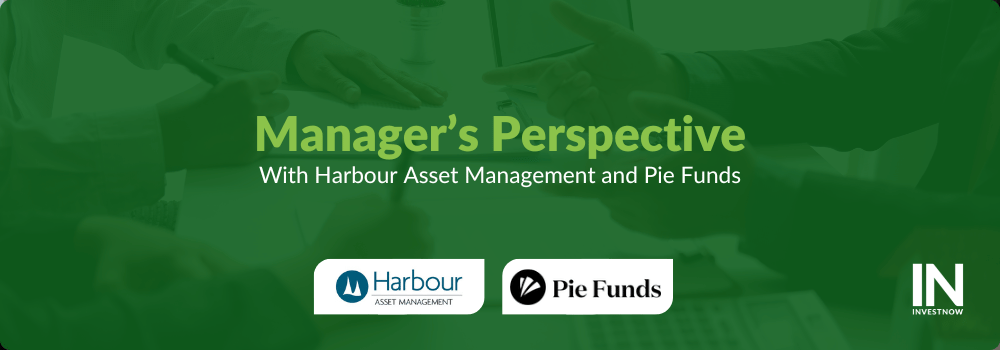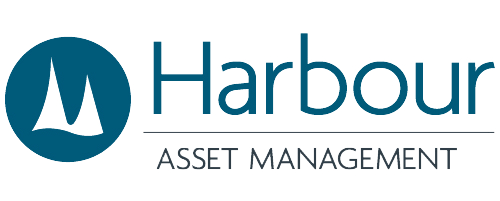
How tax implications influence investment decisions
Welcome to our September 2024 Manager’s Perspective. Each month, InvestNow reaches out to selected investment managers with questions about our monthly theme. This month, we’ve asked Harbour Asset Management and Pie Funds to share their insights on how tax implications influence investment decisions. You’ll find our questions and their expert responses below.
Chris Di Leva
Head of Multi-Asset and Global Investments
Harbour Asset Management


Q1: A recent InvestNow survey found that nearly 50% of investors do not consider the implications of tax when making investments – do you believe this is a prudent approach and if not, how should Kiwis be thinking about tax when it comes to their investing journey?
Tax can be complex to navigate and is an area of discomfort that many people possibly wouldn’t choose to spend their time thinking about. It can also fly under the radar because gross-of-tax returns may often be the ones that are reported and focussed on, as opposed to net-of-tax returns. Think term deposits for example. But, as Benjamin Franklin famously said, “in this world nothing can be certain, except death and taxes”.
Whilst I am not a tax expert, if we cut through the complexity, there are a couple of basic points that stand out for me:
- Tax administration can be fairly burdensome for some types of investment, for example holding direct shares. Firstly, there are additional forms like W-8BEN forms which need to be kept up to date to ensure optimal tax treatment. Secondly, tax returns need to be completed for directly held securities. NZ investment funds that are PIEs take care of a lot of this paperwork plus, for people and trusts in the top tax brackets, the 28% capped out PIR rate can be beneficial.
- A global shares PIE fund with directly held assets (i.e. a shares fund that holds shares directly as opposed to via another fund) generally allows the flow through of foreign tax credits. Usually, the higher the dividend a fund pays, the more foreign tax credits you may get (or miss out on). So directly held assets can be particularly impactful for higher-yielding shares funds like global property and infrastructure. It can be worth considering where a global fund is based. Some global shares funds, where fees are deducted offshore, can have tax implications which aren’t applicable for fees that are deducted in NZ.
For those who are interested in understanding more about taxation of global shares for New Zealand residents and how tax leakage impacts different types of investment vehicles, a great paper I have read on the topic is from MyFiduciary and Kernel.
Q2: As a fund manager, what tax considerations do you account for when constructing and optimising a fund?
Tax is an important consideration for us, but needs to be balanced with other factors including:
- Sometimes investments are not available in a tax-efficient vehicle. In that case, fund managers weigh up the costs of some potential tax leakage against the benefits of gaining that particular exposure in a portfolio.
- Some PIE funds struggle to reach a large enough scale, which means they have high in-fund costs or are simply expensive compared to other investment options out there. Sometimes the benefits of scale, which some large global investment funds enjoy, can outweigh the potential for tax leakage.
Q3: New Zealand has a relatively simple tax system when it comes to investments, however some critics highlight certain drawbacks to our tax settings, such as the lack of tax advantages for long-term investing vehicles like KiwiSaver – do you believe tax rules should change to make it easier for Kiwis to build wealth and invest over the long-term, and if so what changes would you like to see?
I think that there are lots of things to like about how KiwiSaver and the wider New Zealand system is structured. The simplicity of PIE funds makes them easy and efficient for investors to comply, and simple to administer from a tax enforcement perspective. Our system is much less complex than, for example, the Australian system where people can have multiple retirement savings providers and add private assets like art and property into their superannuation account.
That said, I’d love to see more focus on tax benefits to foster innovation and investment in earlier stage companies. This could be done at a R&D tax credit level or at a managed fund/KiwiSaver level.
Further, the Foreign Investment Funds (FIF) regime is an area of complexity which could be simplified. FIFs have the flexibility of choosing between the FDR (Fair Dividend Rate) and CV (Comparative Value) calculation methods, but the highest tax rate for FIFs caps out at 39% vs 28% for a PIE fund. FIFs may also tend to have more tax leakage risks through foreign tax credit leakage and/or fee deductibility. This level of complexity makes it hard for people to make an informed choice. Perhaps adopting FDR for global shares and CV for global bonds under the FIF regime could make it an easier decision (i.e. removing that choice) – though that might make PIE funds even more comparatively compelling than they are today.
Chris Di Leva is Head of Multi-Asset and Global Investments at Harbour Asset Management Limited. The contents of this publication are the personal views of the author and are not necessarily the views of Harbour Asset Management Limited. This content is not intended as financial advice. Reference to taxation in the provided information does not constitute tax advice. You should consult your tax advisor in order to understand the impact of investment decisions on your tax position.
Mike Taylor, Founder and CIO
Pie Funds


Q1: A recent InvestNow survey found that nearly 50% of investors do not consider the implications of tax when making investments – do you believe this is a prudent approach and if not, how should Kiwis be thinking about tax when it comes to their investing journey?
The tax-efficient nature of an investment isn’t the only consideration when constructing your portfolio; however, by strategically assessing your portfolio and reallocating some investment assets into funds with a PIE structure, you may benefit from the capped top tax rate of 28%. The PIE structure is intended to reduce the tax an investor in a PIE pays over a trust or as an individual. Investment income in PIE funds is taxed at a maximum rate of 28%, compared to the top personal tax rate of 39% for individuals earning over $180,000 per year. Starting 1 April 2024, trusts earning Net income above $10,000 annually will also be taxed at 39%, an increase from the previous 33% rate, and significantly higher than the PIE funds maximum rate of 28%.
This, combined with the diversification benefits that most PIE funds typically provide, can be a compelling strategy for navigating today’s investment landscape.
Q2: As a fund manager, what tax considerations do you account for when constructing and optimising a fund?
All Pie Funds products come with potential tax advantages, which are taxed at a maximum tax rate of 28%, compared with investors buying shares directly, i.e. via a broker, which are taxed at a maximum tax rate of 39%.
Q3: New Zealand has a relatively simple tax system when it comes to investments, however some critics highlight certain drawbacks to our tax settings, such as the lack of tax advantages for long-term investing vehicles like KiwiSaver – do you believe tax rules should change to make it easier for Kiwis to build wealth and invest over the long-term, and if so what changes would you like to see?
Yes, noting the successful uptake of KiwiSaver in terms of membership but the lower percentage actually contributing, or contributing enough for a comfortable retirement, any enhancements to support contributions into KiwiSaver would help. In terms of tax settings:
- Remove the Employer superannuation contribution tax (ESCT) introduced in 2012. This tax is currently deducted from employer contributions to employees’ KiwiSaver, reducing the employer’s actual contribution to less than 3%.
- Review the tax rules through the life stages of KiwiSaver. KiwiSaver savings are taxed on entry, investment activity is taxed over lifetime and exempt from tax on withdrawal. Many other countries apply the opposite – that is, tax-exempt on entry, investment activity is tax-exempt over a lifetime, but tax is applied when savings are withdrawn. The latter allows investors to get the benefits for contributions they make and allows more money to compound year on year. This is obviously very beneficial when saving over the long term.
We recognise that it is a balancing act for the government in respect of making changes to the tax settings for KiwiSaver and investments, but it would be wise to consider the short term against the increased savings required to support the longer term living requirements of New Zealanders. Providing tax advantages for long-term savings schemes is very common overseas and is a great incentive. It would be a shame to see it removed.
Pie Funds Management Limited is the manager and issuer of the funds in the Pie Funds Management Scheme and Pie KiwiSaver Scheme (the Schemes). Any advice is given by Pie Funds Management Limited and is general only. Our advice relates only to the specific financial products mentioned and does not account for personal circumstances or financial goals. Please see a financial adviser for tailored advice.
Disclaimer
The following commentaries represent only the opinions of the authors. Any views expressed are provided for information purposes only and should not be construed in any way as an offer, an endorsement or inducement to invest. All material presented is believed to be reliable but we cannot attest to its accuracy. Opinions expressed in these reports may change without prior notice.
InvestNow, its directors, officers and employees make no representations or warranties of any kind as to the accuracy or completeness of the information contained in this publication and disclaim liability for any loss, damage, cost or expense that may arise from any reliance on the information or any opinions, conclusions or recommendations contained in it, whether that loss or damage is caused by any fault or negligence on the part of InvestNow, or otherwise, except for any statutory liability which cannot be excluded. All opinions and market commentary reflect InvestNow’s judgment on the date of this publication and are subject to change without notice. This disclaimer extends to any entity that may distribute this publication. The information in this publication is not intended to be financial advice for the purposes of the Financial Markets Conduct Act 2013, as amended by the Financial Services Legislation Amendment Act 2019. In particular, in preparing this document, InvestNow did not take into account the investment objectives, financial situation and particular needs of any particular person. Professional investment advice from an appropriately qualified adviser should be taken before making any investment.

Leave A Comment